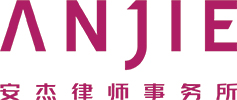Online dispute resolution (ODR) proceedings refers to the use of a wide range of technical methods to provide online support for, or replace traditional dispute resolution. ODR proceedings share the same basic characteristics with those of alternative dispute resolution (ADR), but aim to resolve disputes in a simpler, more efficient manner.

Partner
AnJie Broad Law Firm
Understanding the ODR proceedings of the United Nations Commission on International Trade Law (UNCITRAL ODR), and learning from its experience, can be significant in promoting China’s systemic reform of dispute resolution and solving issues arising from the increase in cases but lack of sufficient personnel to handle them. Additionally, it can be conducive to the improvement of litigation efficiency, rate of verdict acceptance and litigation settlement, and judicial enforcement rate.
Q: Which cases can be applied to UNCITRAL ODR proceedings?
A: The UNCITRAL ODR proceedings are applicable to disputes caused by cross-border, low-dispute-amount e-commerce transactions between business-to-business (B2B) and business-to-customer (B2C), which are usually disputes over cross-border sales or service contracts with small settlement amounts and signed through electronic communications.
Q: What are the elements contained in a UNCITRAL ODR proceeding?
A: It includes the ODR proceeding administrator, ODR platform, neutral and dispute parties, with technical notes on the ODR to provide guidance for these potential participants.
Q: Who are the subjects of UNCITRAL ODR proceedings?
The claimant – the party who initiates an ODR proceeding – and the respondent – the party against whom the notice of action is directed.
An ODR proceeding requires a system for generating, sending, receiving, storing, exchanging or otherwise processing communications. In this article, we shall call it an “ODR platform”.
An ODR platform is administered and coordinated by an entity that within this article shall be referred to as an “ODR administrator”. The ODR administrator may be separate from or forming part of the ODR platform.
Communication that may take place during the course of ODR proceedings is defined as “any communication (including statement, declaration, demand, notice, response, submission, notification or request) made by means of information generated, sent, received or stored by electronic, magnetic, optical or similar means”.
It is preferable that all communications in ODR proceedings take place via the ODR platform. Consequently, both the parties to the dispute, and the ODR platform itself, should have a designated “electronic address”.
Q: What principles do the UNCITRAL ODR proceedings follow?
A: An ODR proceeding ought to be simple, fast and efficient, in order to be able to be used in a “real world setting”, including that it should not impose costs, delays and burdens that are disproportionate to the economic value.
The ODR proceedings follow the following principles:
Transparency
It is recommended to disclose any contractual relationship between the ODR administrator and a particular vendor, so that users of the service are informed of potential conflicts of interest.
The ODR administrator can publish anonymised data or statistics on outcomes in ODR proceedings, in order to enable parties to assess its overall record.
All relevant information should be available on the ODR administrator’s website in a user-friendly and accessible manner.
Independence
It is desirable for the ODR administrator to adopt a code of ethics for its neutrals, in order to guide neutrals as to conflicts of interest and other rules of conduct.
It is useful for the ODR administrator to adopt policies for dealing with identification and handling conflicts of interest.
Expertise
The ODR administrator may wish to implement comprehensive policies for governing selection and training of neutrals.
An internal oversight/quality assurance process may help the ODR administrator to ensure that a neutral’s decisions conform with the standards it has set for itself. The ODR administrator should take appropriate confidentiality measures.
The ODR proceedings should be based on the explicit and informed consent of the parties.
Q: What are the stages of a UNCITRAL ODR proceeding?
A: The process of an ODR proceeding may consist of the following three stages:
Negotiation
An ODR proceeding begins when a claimant submits a claim notice through the ODR platform to the ODR administrator. The ODR administrator then informs the respondent of the existence and content of the claim. The first stage of proceedings – a technology-enabled negotiation – commences, in which the claimant and respondent negotiate directly with one another through the ODR platform.
Facilitated settlement
If the negotiation process fails (i.e. does not result in a settlement of the claim), the process may move to the second stage of “facilitated settlement”. In this stage of ODR proceedings, the ODR administrator appoints a neutral who communicates with the parties in an attempt to reach a settlement.
Final stage
If facilitated settlement fails, a third and final stage of an ODR proceeding may commence, in which case the ODR administrator may inform the parties of the nature of such a stage or provide the parties with possible procedural options for them to choose from.
Nancy Nan is a partner at AnJie Broad Law Firm

19/F Tower D1, Liangmaqiao Diplomatic Office Building
19 Dongfang East Road
Chaoyang District
Beijing 100600, China
Tel: +86 10 8567 5988
Fax: +86 10 8567 5999
E-mail: nanxing@anjielaw.com





















